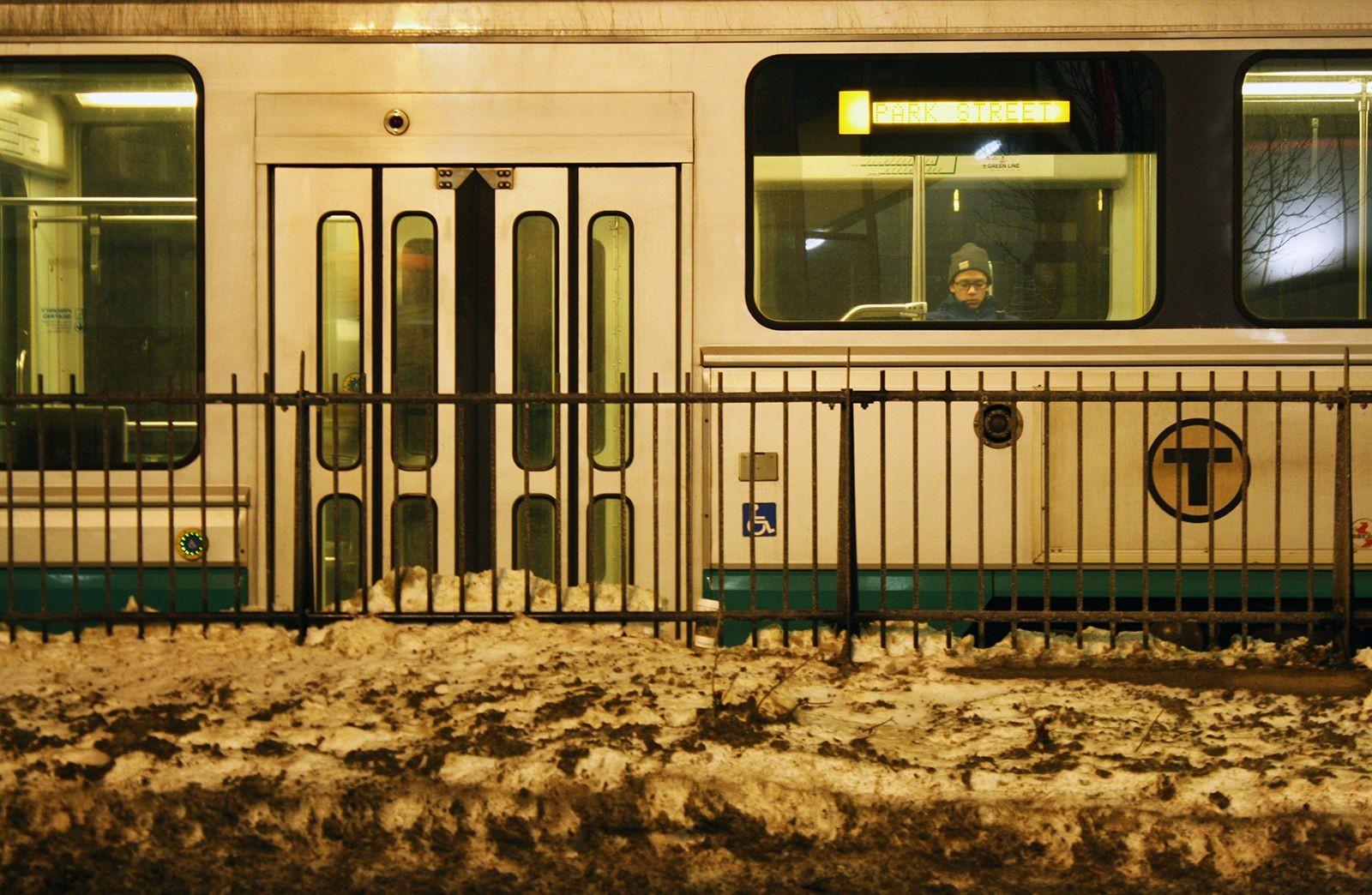The onslaught of snow in Boston this winter, which has brought a collective 96 of inches of powder to the city, appears to be losing strength. But after skies clear, the city will remain hobbled by the residual effects of the white flakes for weeks to come.
Road conditions in Massachusetts will remain slick for a time, and sidewalks won’t be fully cleared for a few days. Businesses will struggle to make up for lost sales from when residents huddled inside for days at a time amid blizzard conditions.
But, as announced on Tuesday, the Massachusetts Bay Transportation Authority won’t fully recover from the snow for nearly a month, maybe longer.
“It’s like a war, and we’re taking this back station by station, line by line, switch by switch,” said MBTA General Manager Beverly Scott in a conference call with reporters on Tuesday.
More than 30 trains were canceled on Tuesday as crews hustled to remove snow from the tracks. Teams of Suffolk County prisoners have been clearing tracks on the Red Line’s Braintree Line, MassLive reported. The MBTA has even reached out to local union members, offering $30 an hour to shovel, according to Universal Hub.
These shoveling initiatives by the MBTA make sense in the current climate. The snow is here, and it needs to go somewhere else. But the fact that the MBTA, which runs the fifth largest transit system in America, is resorting to hand-shovels to clear snow is unacceptable.
Scott’s war analogy about the MBTA is right. The agency is at war with the snow. And like any good army, the MBTA needs the best resources to win. In this case, the best resources are railway snowplows and third-rail heaters, not inmates in jumpsuits with shovels.
As The Boston Globe reported Tuesday, the MBTA has not seen a significant overhaul in decades, with legislators consistently ignoring warning signs that the agency needed help. Instead, small financial band-aids have kept the MBTA from bleeding out entirely. But we are at a point where the losses are becoming unacceptable.
Former Massachusetts Gov. Deval Patrick unveiled a $1.9 billion tax increase in 2013 with hopes that much of the money would go to the MBTA’s ailing infrastructure, the Globe reported. But the Massachusetts legislature stripped down Patrick’s proposal and only allocated $600 million in new taxes to transportation.
While a $600-million boost in funding may sound like a lot, it is not enough for an aging system that facilitates billions of dollars in commerce in the Bay State each year.
Residents have not been able to get to work because of the recent MBTA problems, and consumers have been discouraged from shopping at local outlets. Due to the snowfall on Valentine’s Day, many restaurants saw their reservations evaporate. All told, more than $1 billion has been lost in the local economy over the last weeks, a deficit accrued in part by MBTA delays and shutdowns, the Globe reported.
While the MBTA is not profitable (the agency is actually nearing $8 billion in debt), it remains a key infrastructure system that must not only be sustained, but also invigorated.
The political pressure to put more money into the MBTA following these service outages may evaporate exactly when the white stuff does. But these longstanding issues will return when the snow does.
The legislature must allocate more money to the MBTA so that service can remain consistent, even in the worst weather conditions. Boston, which is historically known as a hub of nasty Northeast weather, must be ready for any and all sorts of weather.
But Massachusetts Gov. Charlie Baker has only recently realized the power of snow, and he should not forget it.
“If I’ve learned one thing over the course of the past two weeks,” Baker said last week, “it’s that Mother Nature makes the rules.”
Mother Nature does make the rules and always will. If industrial plows replace union shovelers next winter, the city will be well armed for a war with Mother Nature. And when the city has the necessary equipment for war, it will win.



















































































































